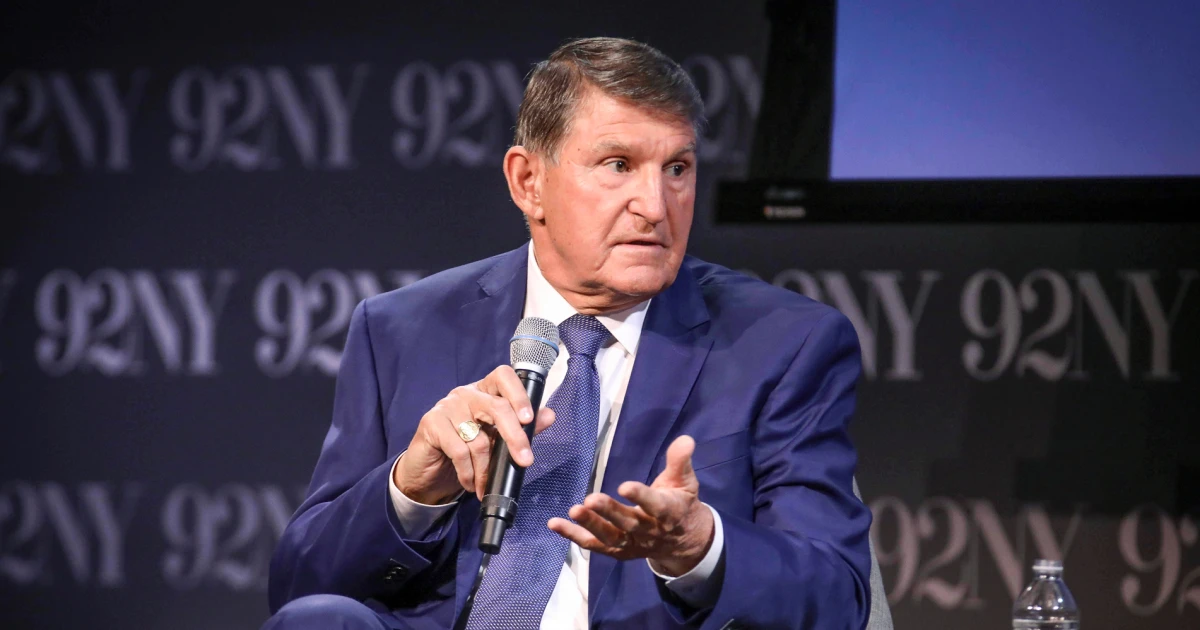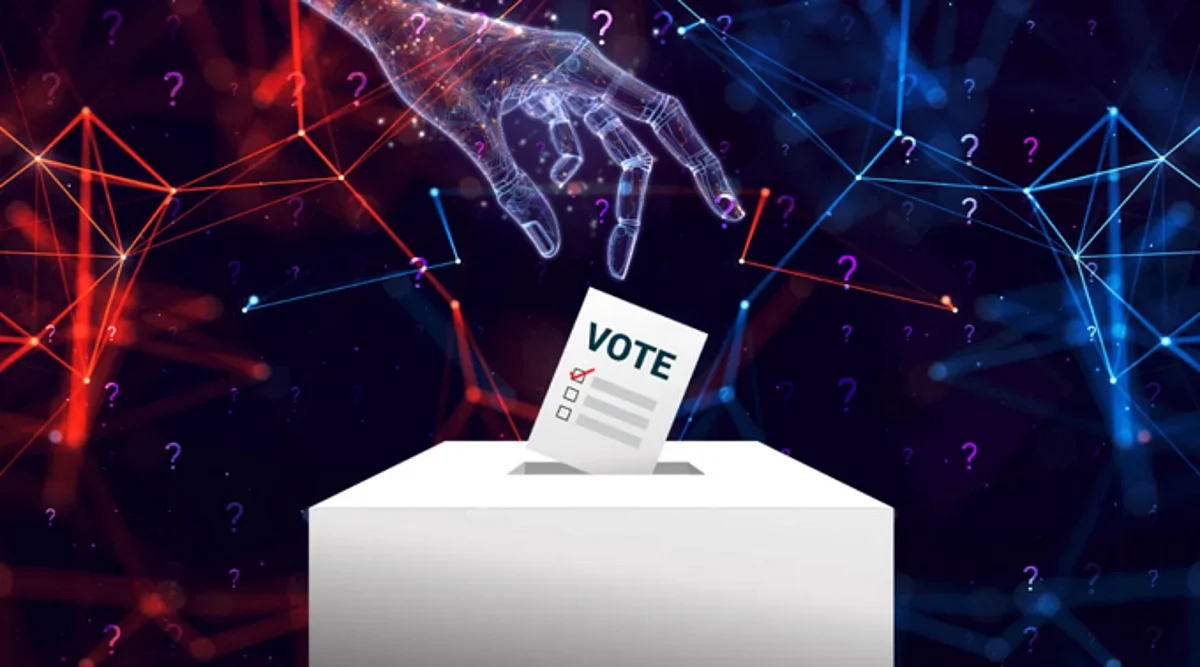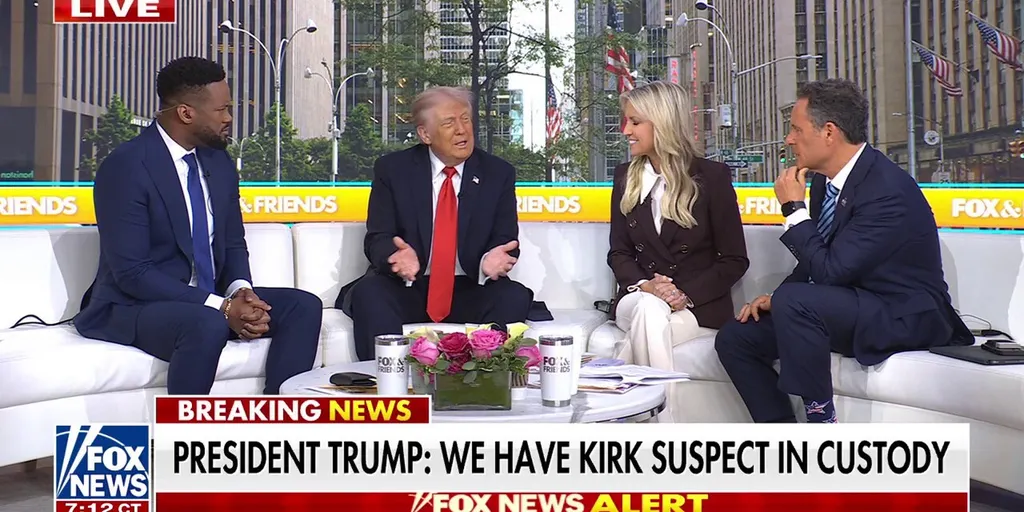
Joe Manchin is back! It’s not clear who was asking him to return, but the former West Virginia senator and governor has that most noble of post-retirement goals: a book to sell.
The book’s title, “Dead Center: In Defense of Common Sense” tells you much of what you need to know. Manchin spent the last few years of his political career subverting and annoying his fellow Democrats, and he wants to take a few last potshots at those who displeased him. Alas, while there are some important lessons to learn from Manchin’s career, they aren’t the ones he wants to impart.
Based on the pre-publication excerpts his publisher released and his media appearances, Manchin’s message is unchanged from his time in Washington: There’s too much partisanship in politics, and we can solve our problems if we reach across the aisle and try to get along.
Manchin has been one of the foremost advocates for centrism, the most hollow of political approaches.
In the abstract, that’s a perfectly noble sentiment. But politics doesn’t happen in the abstract. This is the problem with so much of what Manchin advocates: He talks far more about process and building cooperation than he does about the substance of politics — the decisions that affect people’s lives. Too often he glosses over the policy details as though they are of only marginal interest.
And his I’m-just-a-small-town-West-Virginia-boy act conceals an ambitious politician who was skilled at maximizing his own influence. That was never more true than after the 2020 election, when the Senate was divided 50-50 and Democrats held control only with the tie-breaking vote of Vice President Kamala Harris. That put Manchin at the fulcrum of the Senate, able to dictate the terms of legislation and kill whatever he didn’t like. Much of the time, that meant keeping Democrats from being too ambitious about shoring up the safety net or addressing climate change.
In fairness, Manchin stayed a mostly-loyal Democrat to the end, even after he officially changed his registration to Independent in 2024. He voted to confirm the vast majority of Joe Biden’s judicial and executive branch nominees, he signed on to most of Biden’s signature bills in the end and he secured his share of federal funding for his constituents, all of which is to his credit.
But throughout, Manchin has been one of the foremost advocates for centrism, the most hollow of political approaches.
The trouble with centrism is that it isn’t really about anything — and Manchin is case in point. Centrism defines itself not by a set of policy goals or basic principles, but simply in relation to the right and left.
A rare case of principle for Manchin was the filibuster.
The centrist’s position depends on what Democrats and Republicans believe — only once that is known does the centrist position themselves in the middle.
A rare case of principle for Manchin was the filibuster, which enables the minority party to stop legislation from happening. He even says he hoped Republicans would win control of his chamber in 2024, since it was “the only hope for preserving the Senate as an institution” — i.e., preserving the filibuster.
“I don’t say this lightly,” he writes in the book, but since the Obama presidency, “Democrats have systematically tried to weaken the very guardrails that have protected our democracy for generations — all in the name of advancing their agenda.” First of all, “advancing their agenda” is what political parties do. What else would they be doing? If you’re not advancing an agenda, what did you get elected for?
Second, when Manchin speaks of protecting democracy, what precisely does he want to protect it from? The answer appears to be: too much legislating.
In the end, Manchin didn’t represent any national constituency of centrists. He talked about “common sense” and “bipartisanship,” which flatter the simple-minded belief that there are wonderful solutions to complex problems just waiting to be grasped if we cast off the pettiness of ordinary politics. But he seldom explained what those solutions were. Most of the time, what he advocated was nothing more than warmed-over conservatism. If that’s your jam, that’s fine. But for most voters, it isn’t all that compelling.
That helps explain why, for all the power he wielded in a divided Senate, Manchin’s appeal was so limited outside that context. He was reasonably popular in West Virginia, but when he flirted with a presidential run in 2023 under the auspices of the vacuous political group No Labels, it was clear there would be no Manchin groundswell. He helped his daughter start a group called Americans Together to advance the cause of centrism, insisting that there is a broad majority of voters in the middle just waiting to be turned into a powerful movement.
Haven’t heard of it? Exactly.
Telling people that “common sense” is the answer to policy conflicts where the parties have incompatible goals is an insult to voters’ intelligence. What’s the “common sense” solution to whether abortion should be legal that Democrats and Republicans could agree on? Republicans are trying to destroy Medicaid, while Democrats would like to expand it. Does “common sense” tell us the best answer to that conflict?
It does not, because politics cannot happen without conflict. It’s where we disagree and argue and organize and try to shape the world more to our liking. Yes, bipartisanship is sometimes possible, and you can do politics in ways that are civil and respectful. But you can’t take the politics out of politics, much as Joe Manchin might like to. That’s just common sense.



